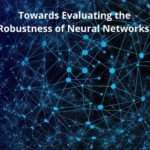Summary contributed by Shannon Egan, Research Fellow at Building 21 and pursuing a master's in physics at UBC. *Author & link to original paper at the bottom. Mini-summary: Neural networks … [Read more...] about Research Summary: Towards Evaluating the Robustness of Neural Networks
Research Summaries
Research summary: Learning to Diversify from Human Judgments – Research Directions and Open Challenges
Mini summary (scroll down for full summary): Current algorithmic techniques frame the notion of diversity in the sense of using the presence of sensitive attributes in the result set as a measurement for whether … [Read more...] about Research summary: Learning to Diversify from Human Judgments – Research Directions and Open Challenges
Research summary: Adversarial Machine Learning – Industry Perspectives
Mini summary (scroll down for full summary): An emerging area of concern for companies that are seeing heavy deployments of ML systems in the industry is cybersecurity. There are many emergent risks that are a … [Read more...] about Research summary: Adversarial Machine Learning – Industry Perspectives
Research summary: Machine Learning Fairness – Lessons Learned
Top-level summary: When we think about fairness in ML systems, we usually focus a lot on data and not as much on the other pieces of the pipeline. This talk provides some illustrative examples from the Google Fairness in … [Read more...] about Research summary: Machine Learning Fairness – Lessons Learned
Research summary: The Toxic Potential of YouTube’s Feedback Loop
This summary is based on a talk from the CADE Tech Policy Workshop: New Challenges for Regulation in late 2019. The speaker, Guillaume Chaslot, previously worked at YouTube and had first hand experience with the design … [Read more...] about Research summary: The Toxic Potential of YouTube’s Feedback Loop





